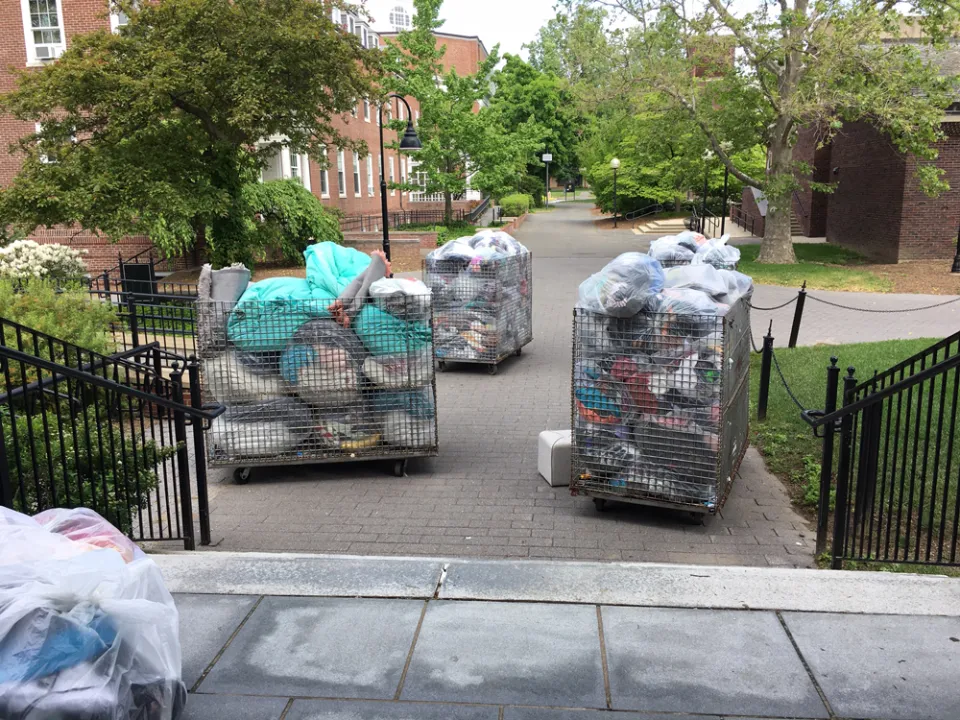SmithCycle
SmithCycle reduces end-of-year waste and gives viable goods a new life at Smith or in our broader community by collecting items left behind when students move out and cannot fit all of their things into storage bins, suitcases, or car trunks.
For questions about the program please reach out to smithcycle@smith.edu.
2025 Dates & Locations
2024 Results
Last year, we received an astounding 18,000 lbs (9 tons) of donations to SmithCycle. Of these donations, 50% (4.5 tons) was clothing!
Since 2021, SmithCycle has been keeping some winter gear, bedding, task lamps, fans, room décor and school supplies on campus and giving them back to students via the International Students and Scholars Office and the Common Goods Resource Center. The Common Goods Resource Center, on the ground level of the Campus Center, offers basic-needs items free of charge to any student facing temporary or chronic financial hardship, no questions asked. However, only 12% of donations stayed on campus; the rest went to local community partners.
Starting in August 2024, SmithCycle kept all books, housewares, school supplies, and winter clothing on campus. Winter clothing is shared with students through the International Students and Scholars Office, books are added to a new book nook in the Campus Center, and everything else is provided to new and returning students during move-in through a new event called SmithCycle Thrift. (Other clothing and food/toiletries are still donated to community partners.) Last year, SmithCycle Thrift served over 520 new and returning students, and we hope to reach even more people this coming fall. Through this new program we aim to ensure all incoming students have everything they need for a successful year and reduce the amount of new items that students need to buy!
